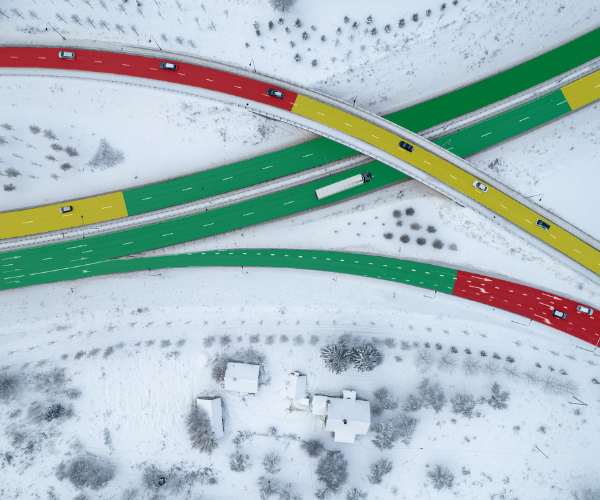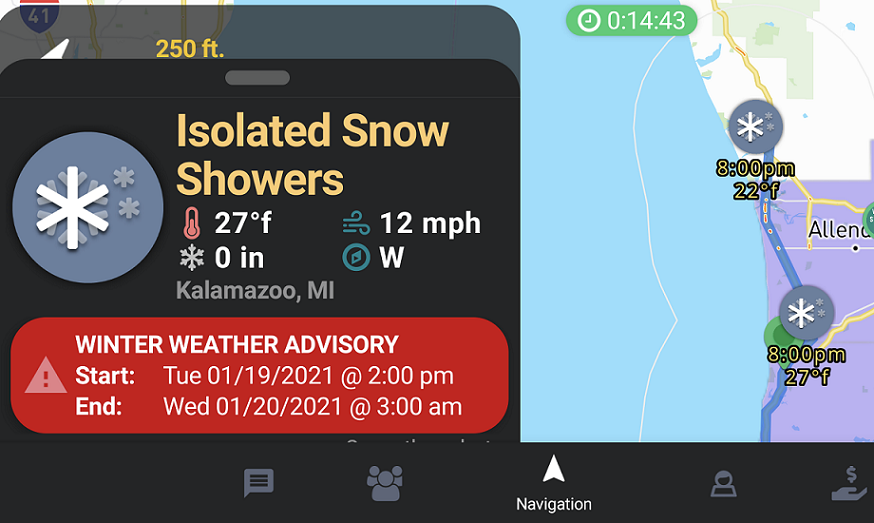Accurate road weather forecasts are essential for effective snow and ice control operations.
Twenty percent of all road accidents in the U.S. are weather-related. This alarming statistic is one of the key reasons why road weather forecasts are increasingly important. These forecasts provide valuable information about road surface temperature, precipitation, surface conditions, and other factors affecting the safety and efficiency of road travel, especially during challenging weather conditions.
Understanding current and forecasted road weather is crucial for transportation authorities, emergency services, and public works organizations in making important operational decisions. However, more often than not, they rely on basic atmospheric weather forecasts. For effective snow and ice control management, road weather information is invaluable. This is why Xweather Horizon is built—to provide full awareness of road weather across specific road networks.
In this post, we'll explore the differences between a general weather forecast and a road weather forecast, and their importance in winter road maintenance.
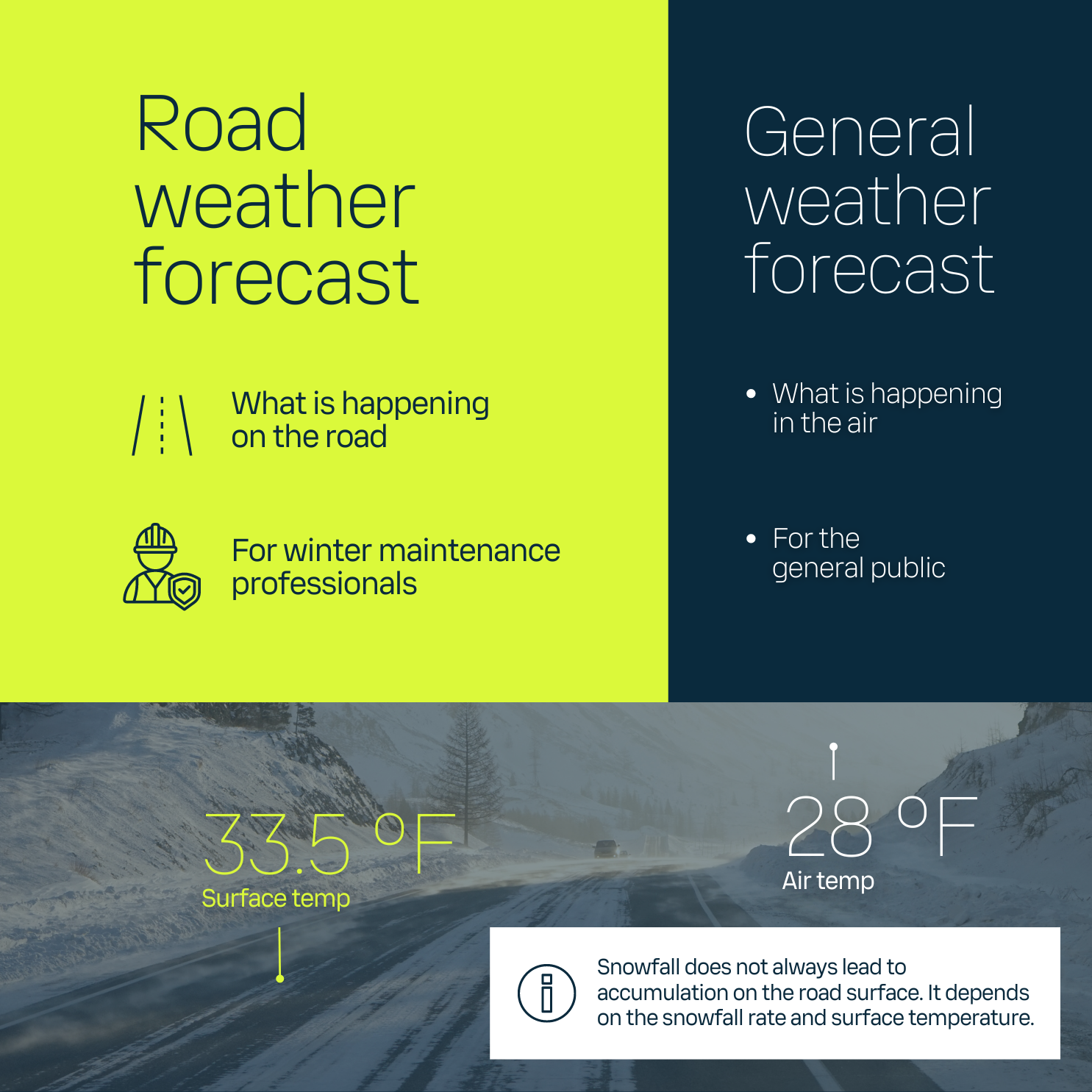
While general weather forecasts focus on providing a snapshot of atmospheric conditions (aka what's happening in the air), road weather forecasts drill down into the state of road surface. General weather forecasts will tell you the likehood of rain, while a road weather forecast will indicate whether that rain will lead to slippery roads.
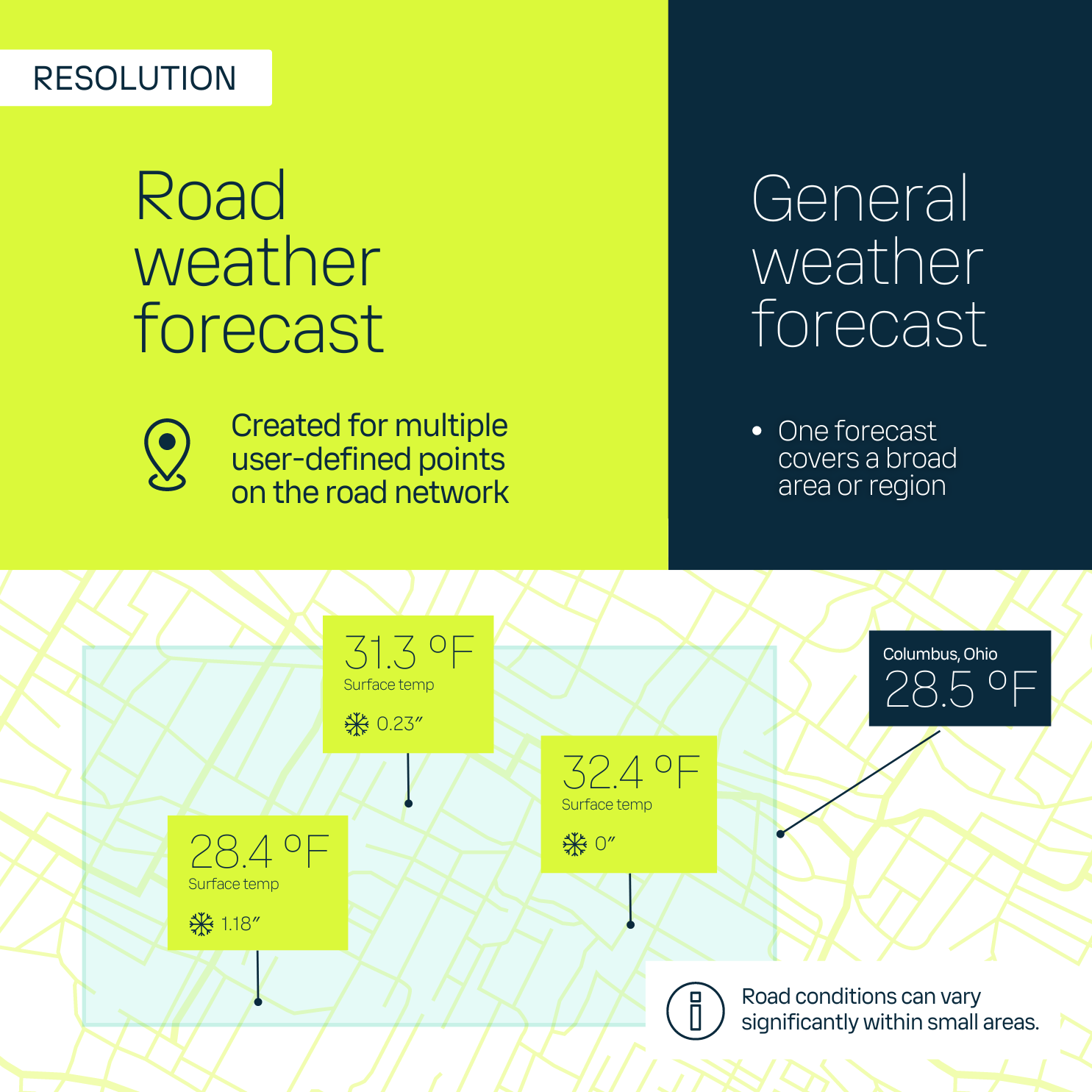
A general weather forecast covers a large area and doesn't account for microclimates and local features that can affect road conditions over short distances—such as varying elevations, built structures like bridges, and the proximity of water bodies. In contrast, a road weather forecast is created using data from user-defined points on the road network, ensuring the forecast is highly targeted.
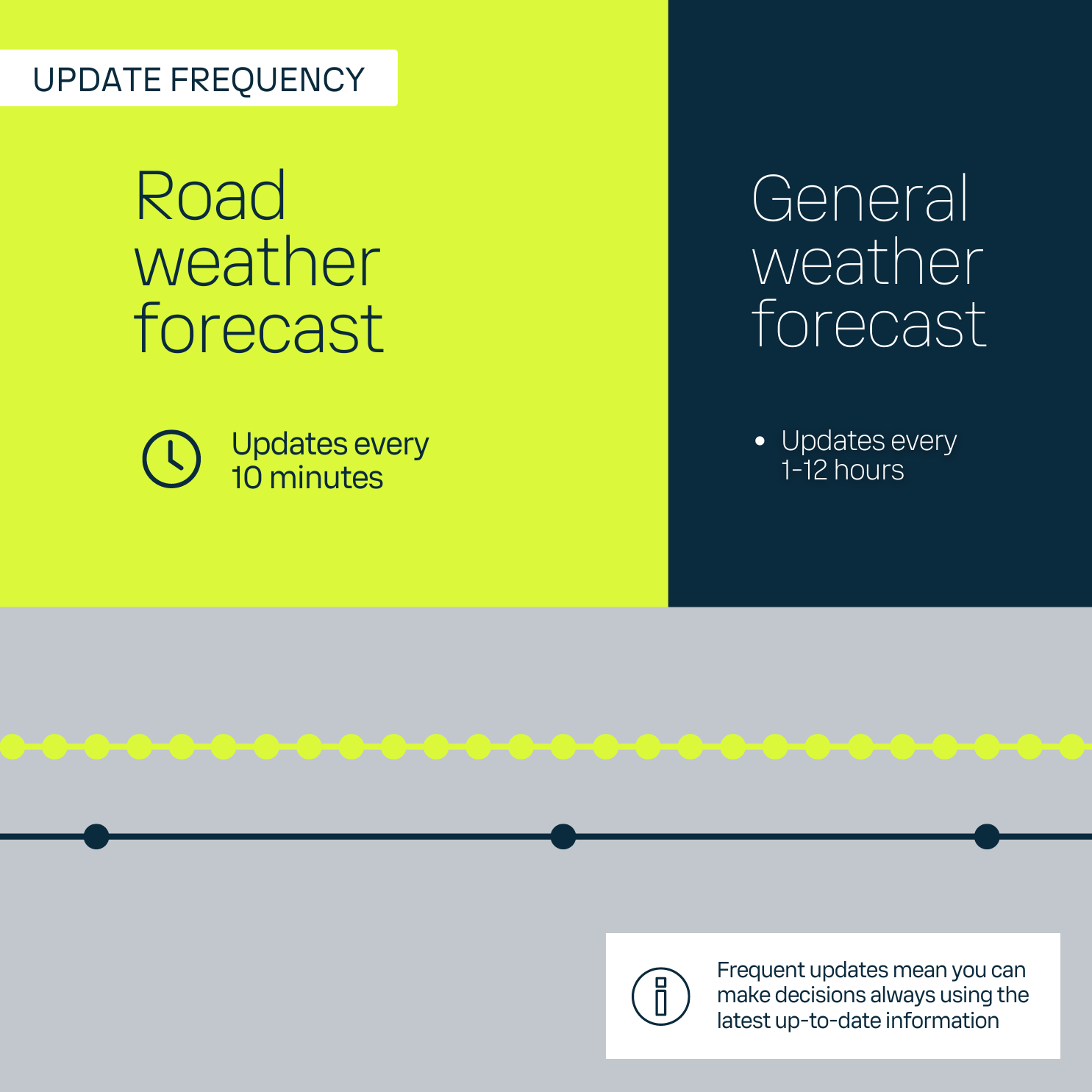
General weather forecasts update every 1 to 12 hours. That’s sufficient to plan what to wear to work, but it hardly meets the needs of a road maintenance crew. With Xweather Horizon, road weather forecasts update every ten minutes, ensuring that snow and ice control practices are timely and effective.
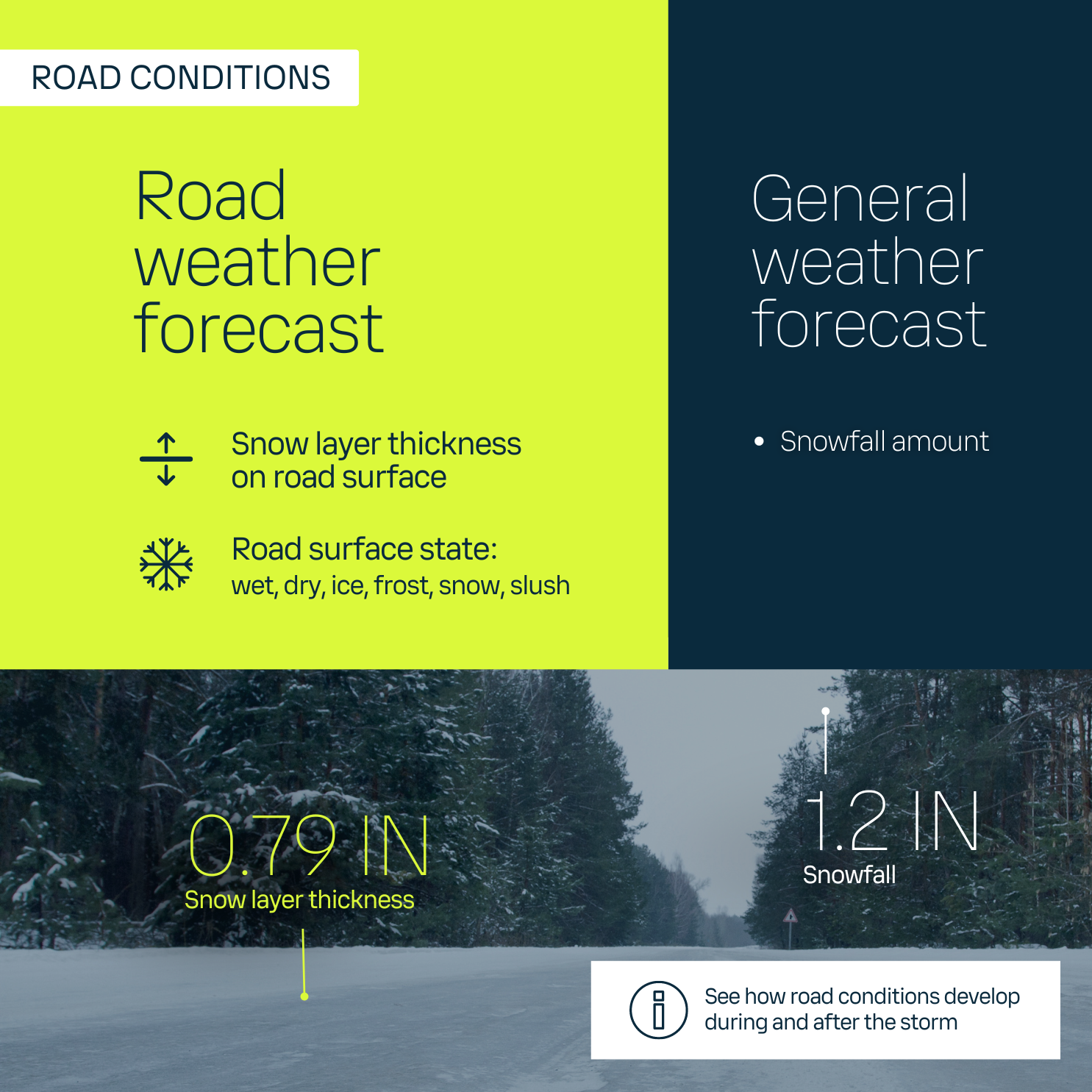
A general weather forecast will inform you of the amount of precipitation, but a road weather forecast tailored to your road network will also provide details on the type of precipitation and its impact on road conditions. Combined with a hyperlocal temperature forecast, it offers invaluable insights for making treatment decisions.
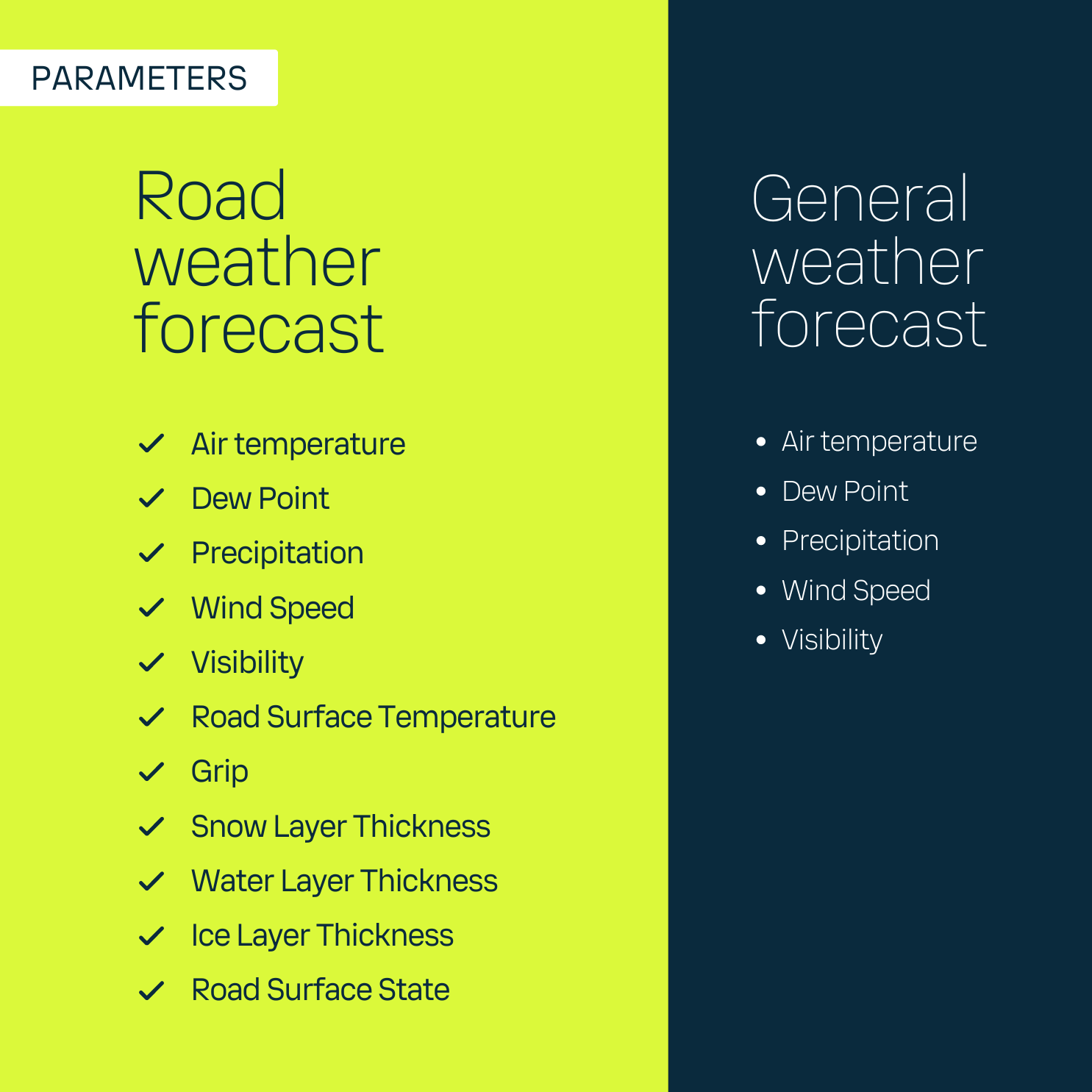
A general weather forecast provides a limited set of parameters, while a road weather forecast paints a complete picture of how weather conditions affect your roads. It includes information about grip, precipitation type, and its thickness on the road surface, among other critical details.
Curious to try out road weather forecasts and see how they can enhance your winter maintenance operations? Book a personalized demo to see Xweather Horizon in action.

